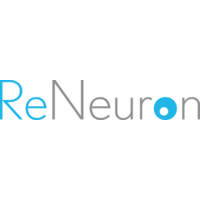 LONDON: ReNeuron Group plc, a UK-based global leader in the development of cell-based therapeutics, has signed a new research evaluation agreement with a major US biotechnology company in connection with the use of the Company’s proprietary exosomes for the delivery of novel gene silencing therapeutics.
LONDON: ReNeuron Group plc, a UK-based global leader in the development of cell-based therapeutics, has signed a new research evaluation agreement with a major US biotechnology company in connection with the use of the Company’s proprietary exosomes for the delivery of novel gene silencing therapeutics.
This latest research collaboration will focus on the use of ReNeuron’s human neural stem cell (hNSC) derived exosomes for the delivery of the US biotechnology company’s neuroscience therapeutic candidates. ReNeuron will be responsible for manufacturing exosomes and then loading them with the gene silencing sequences after which the US biotechnology company will evaluate the loaded exosomes. Assuming positive results, the parties will jointly own the novel therapeutic candidate created for future development.
The research evaluation agreement is in line with ReNeuron’s strategy of partnering its exosome technology as a novel delivery vehicle. This new agreement follows an exosome research collaboration with a major pharmaceutical company announced by ReNeuron on 7 April this year, reflecting the increasing level of industry interest in exosomes.
ReNeuron has developed exosomes derived from human neural stem cells (hNSC) that have a natural ability to cross the blood brain barrier and can thus be used to deliver therapeutics for diseases of the brain. The hNSC-derived exosomes can be produced through a fully qualified, xeno-free, scalable process and the clinical-grade hNSC source cell-line ensures consistent exosome product. The hNSC exosomes can be loaded with a diverse range of potential therapeutics, such as siRNA/mRNA/miRNA, CRISPR/Cas9, antibodies, peptides and small molecules.
Commenting on the agreement, Olav Hellebø, Chief Executive Officer of ReNeuron, said: “We are delighted to be collaborating with this major US biotechnology company in the discovery and development of novel gene silencing-based therapeutics. This latest exosome collaboration follows our strategy of collaborating and out-licensing our proprietary exosome technology as a novel delivery vector and underlines the potential commercial value of these proprietary nanoparticles.”